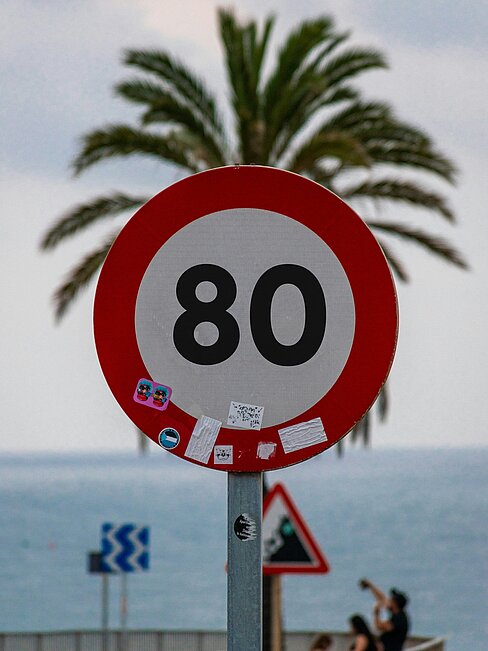Parenthood and branding
March 2024 • 766 words • Headerimage @ Pexels Anna Shvets
Whether you are a parent or a branding expert, both roles require courage, patience and learning from experience. Discover the surprising similarities and what they mean for successful branding!
Many jobs can only be done with formal training. You can't drive a car without taking lessons and passing a test. You cannot scuba dive without a diving licence. You can't be a teacher, lawyer, therapist or beautician without proving you know what you're doing. But you can be a parent without any training - and that's a pretty responsible job. And what about branding? Do we know what we're doing?
At the moment there is no formal training for parents, although some people think that a parenting licence would be appropriate because of obvious and fatal parenting mistakes. The decision to become a parent is still based on personal desire and circumstance. Parenthood is earned, not given. Our expertise is based on our own observations and experiences, guided by our own desires and ideas. The same is true of branding. We all instinctively engage in branding as part of our social belonging dynamic. Some do it more consciously than others in order to be recognised in a certain way. But does that automatically make everyone a branding expert? The subject of branding is complex and difficult to explain to the layman. Much of it is based on comparisons and is almost impossible to prove. It is about long-term goals. Success or failure only becomes apparent in the future. There are parallels with parenting.
Can you learn branding? Isn't it enough to have a feeling for the brand and to grow into it? If we are talking about a parenting licence for raising children, we should also be thinking about a branding licence. In both cases, the responsibility for the future is immense and does not diminish as the children grow up. On the contrary: small brand - small worries, big brand - big worries.
Becoming a father is not difficult,
but being a father is very difficult.
Wilhelm Busch, German author
But how do you get a branding licence? What entitles us to branding, so that a potential client doesn't feel like he's financing an adventure? Is it enough to show the client previous successes? Doubts are justified. It would be like showing the older child as proof of the successful upbringing of all future children. But we are not yet cloning, we are still dealing with individuals. What works for one child may be a mistake for another. We also recognise that in branding, the origins and reasons for success are not always clear. Developing and maintaining a brand requires a deep understanding of marketing strategy, market research, design principles and communication techniques. These are skills we have acquired through formal training and study. In practice, we only see what is happening step by step and have to react. That is the nature of a brand.

Some might argue that children are usually placed in professional hands - in nurseries or schools - where trained educators take charge of their upbringing. The relationship between a brand owner and a brand agency is similar: the parents provide the right 'genes' and the educators or experts take care of the development. But in the end, everyone is responsible for success - parents, teachers and brand agencies alike. An expensive boarding school or the most prestigious agency cannot guarantee the result. Collaboration, commitment and a clear vision are essential to turn a promising start into a success story.
The best driver is the one who drives a lot
Many acquire their branding knowledge and skills solely through practical experience and self-study. Those who drive a lot are the best drivers. They may have worked in a variety of fields, such as marketing, design or entrepreneurship, where they acquired specific skills relevant to branding. Many come to branding as career changers from other fields, driven by their interests or passions. These career changers often bring different perspectives and skills that are valuable to branding. There is no single path to branding. Career changers are also valued in other fields, not because of a shortage of talent, but as an asset.
Formal training is therefore not absolutely necessary to be successful in branding. There are currently no fixed rules or official regulations that define this. Who decides what requirements are necessary for branding? It is not our driving licence that makes us successful, but our experience, our personality and our convictions. Acting like a brand is the best proof of this. Becoming a parent usually leads to a deeper look at your own history: children make you look back on your own childhood and growing up. Dealing with your own history is a good guide. This includes making mistakes and taking risks. This is the only way to learn how to deal with the consequences.
Branding is like becoming a parent: some come to branding like a virgin to a child, others are excited after their first experience and want more. Those who begin do not yet know what to expect on the journey and how their nature and behavior can change with increasing experience. Because branding always starts with you, even as a child.

